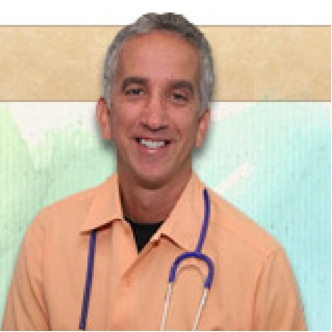Written by Dr. David Brownstein
Be still my beating heart. One day after writing a blog post describing how taking a statin for six years gives you three or four more days of life, CNN publishes an article titled, “Global study lays groundwork for daily statin usage to prevent heart disease.” (1) This study is referred to as the HOPE-3 trial. The author of the CNN article was summarizing the findings from a New England Journal of Medicine Study released on April 4th, 2016 (2).
(BTW: This study was funded by Big Pharma Cartel member, AstraZeneca who, you guessed it, makes Crestor—the statin drug used in the study.)
Could I be wrong? I have been stating that statins fail nearly 99% who take them, yet the CNN article stated that those who took Crestor (when compared to those that took a placebo) for nearly six years had a 24% reduction in heart attacks, strokes or heart-related deaths. Furthermore, the authors of the study stated, “The HOPE-3 trial provides evidence to reinforce some current guideline recommendations and to influence future guidelines.”
I am not sure what guidelines the authors want to reinforce, but perhaps they meant the Dr. B guidelines. I have said for years that statin drugs fail nearly 99% who take them. Let’s see if the HOPE-3 trial findings agree with my guidelines.
You see, in HOPE-3, 3.7% of those that took a statin drug over 5.6 years had a heart attack, stroke or suffered a heart-related death compared to 4.8% who took a placebo. The CNN article correctly stated that this was a 24% reduction in the statin-treated group (3.7%/4.8%). However, the reported 24% reduction is a relative risk reduction. As I have taught medical students, residents, and other physicians for years, the relative risk ratios are used by Big Pharma to make a poorly performing drug look better than it actually is. In fact, the relative risk concept is meaningless in a clinical study. It provides no useful information for the clinician to decide whether a particular therapy is useful or not.
The absolute risk difference of risk is a more meaningful way of interpreting data in order to use it clinically. What is the absolute risk difference in the HOPE-3 trial? It is 1.1% (4.8%-3.7%). That means, according to HOPE-3, 91 subjects would have to take a statin medication for nearly six years to prevent one cardiovascular event. In other words, the drug (Crestor) failed nearly 99% who took it—they received no cardiovascular benefit.
Folks, this study agrees with everything I have written about statins. In fact, my wife Allison (who just edited this post for me) just said, “You have been saying that for a long time. I am sick of hearing about it.”
Allison does have a point. I too am tired of hearing the lies perpetuated about statin drugs.
The HOPE-3 trial does reinforce the Dr. B guidelines for statin use: No one should be prescribing or taking any drug that fails nearly 99% who takes it.
(1) http://www.cnn.com/2016/04/03/health/statin-usage-heart-disease-stroke/index.html
(2) http://www.nejm.org/doi/full/10.1056/NEJMoa1600176
The original post from Dr. Brownstein can be found here.

Dr. David Brownstein is a Board-Certified family physician and is one of the foremost practitioners of holistic medicine. He is the Medical Director of the Center for Holistic Medicine in West Bloomfield, MI. Dr. Brownstein has lectured internationally to physicians and others about his success in using natural hormones and nutritional therapies in his practice. He is a graduate of the University of Michigan and Wayne State University School of Medicine. Dr. Brownstein is a member of the American Academy of Family Physicians and the American College for the Advancement in Medicine. He is the father of two beautiful girls, Hailey and Jessica, and is a retired soccer coach.
Dr. Brownstein has received two prestigious awards by his colleagues. The first was given by the American College for the Advancement in Medicine at the 2005 annual meeting. The award was the Norman E. Clarke Sr. Award for Science and Practice. The second award was given by the American Academy of Integrative Medicine at their 2005 annual meeting in Florida. This was titled, 2005 ARC Excellence Award for Distinguished Clinician for his “Advancement in the Diagnosis and Treatment of Chronic Diseases.”

